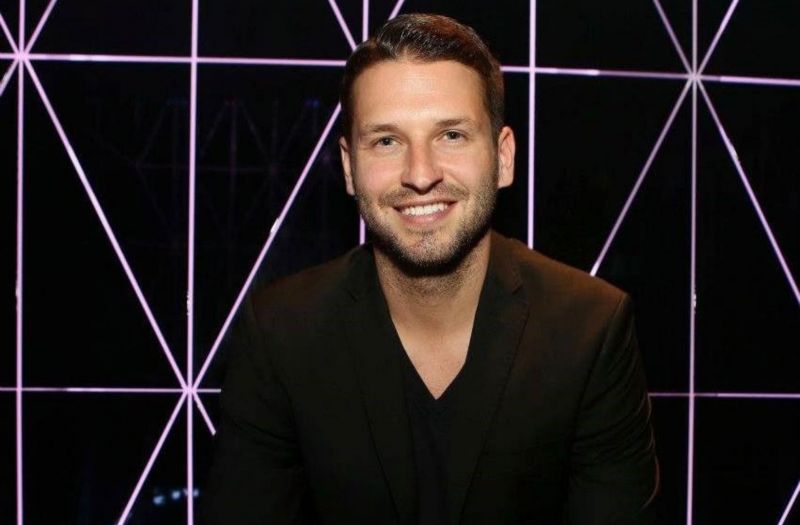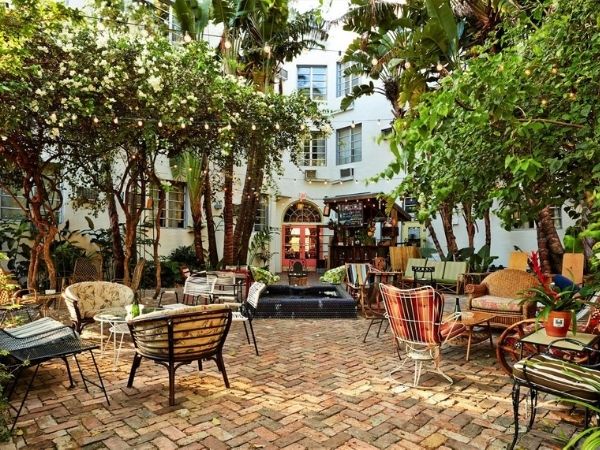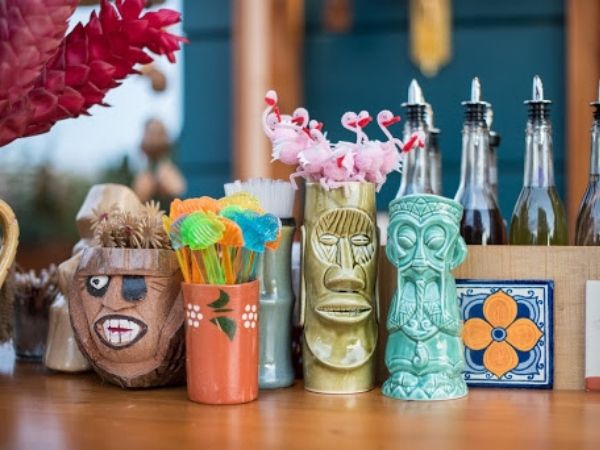Educating Bartenders Worldwide.
By Beverage Trade Network

For Bar Lab director of operations Jarred Grant, lockdown came as a surprise - but it has given his company a chance to be more effective
This has been a tough year for all businesses, but particularly so, perhaps, for a small company that operates in four different jurisdictions. That’s the situation at Bar Lab, which runs Broken Shaker cocktail bars in Miami, Los Angeles, New York, and Chicago, plus a handful of other operations. We spoke to 40-year-old director of operations Jarred Grant - who, like Bar Lab, is based in Miami - to see how they’ve weathered the storm.
“It was going like other years; it was very consistent with what we've seen in past years. At the start of the year we had the Super Bowl down here in Miami, which is always a great thing, which looking back is insane to think about all of the people that were here and what was secretly going on and being passed at the time.
“The thing with Miami is, the seasonal nature of it is very repetitive. There's a real rhythm to it. 2020 was really headed in the same direction and we were trying to have a good year. It was looking to be a year like any other.”
“In Florida, we were really slow to do a lot of things. California and New York were the first ones to really shut things down and make those declarations. We had an inkling that was coming here, but just like anything that has to do with regulation, the state of Florida is not necessarily great at it, so we had a little bit longer.
“It was a shock, none of us could believe it. I remember thinking to myself like, no, wait, we can't shut down, what are you talking about? It's in our DNA that you operate, no matter what. We're open seven days a week, 365 days a year unless there's a hurricane or something crazy like that. It felt so against all of your instincts, even though from our perspective, it made sense.”
“It was a lot of phone calls. I probably spent the first month of the quarantine on the phone nonstop all day, either talking to staff or talking to other people that we know, other operators to get their perspectives. But the process of furloughing was not an easy one, none of us knew when they were coming back. I remember thinking a month tops, but none of us really wanted to put a date on it.
“Everyone took it really well, which made the process easier. And I think everybody was a little... None of us had been through this before, no one knew what to expect, which has been the hardest part of this whole process was not being able to plan.”

“In anticipation of reopening, we did keep on a few higher-level management, maybe one or two per property. Part of that reasoning was one, you want to keep as many people as you possibly can, for when we needed to restart. We couldn't be starting over.
“Then there was the fear of not knowing how long this was going to be. People might go their own ways … do they find new opportunities? And then you find yourself coming back to operations with a brand new team and it's like starting over. The outreach was super important during the quarantine time.”
You operate in a number of cities; have the challenges of Covid-19 been different in the various markets in which you operate?
“Yeah. You've got to try to keep up with all the city ordinances or county ordinances, state ordinances in every state, which are all different. Miami, we have 11:00 PM curfew, before we had a 10:00 PM. In LA, we had 11 PM. The different occupancies allowed in Chicago is 25% indoors and each of our venues is a little bit different.
“Thankfully, New York, Miami and LA have outdoor components, but Chicago is completely indoors. It's not like we can develop one plan for all venues and see that through with consistency. We had to treat each one a little bit differently and each state's approach is different.”
“We tried it initially and it wasn't super successful for us. I've talked to a lot of different operators; some people, like Jon and Vinny's in Los Angeles, did really well, but they have a food cuisine that fits what people want when they take home. And they also had a large portion of their business that was already to-go.
For us particularly being a bar, it's really, it's really hard to make money on-to-go cocktails. When we ran the numbers between labor, product and the uncertainty of how much you're going to actually sell it didn't seem totally worth it.
“We developed an ‘at home’ cocktail kit that we've been selling direct to consumers. We're actually developing a business out of it. It's going to be a long term business structure for us. We've developed a wholesale program where we can sell cocktail mixes to businesses so they don't have to worry about the labor of doing the program themselves. And we've gotten a really great response to that because these mixes really provide a very layered and complex drink with very little effort. It's basically a two-step process.”

“A lot of social engagement, that's our biggest way to connect with our guests and just constantly reminding and... I think at this point in time too, with everything that was going on in America, beyond just the pandemic ... People needed to see good messaging and feel like the world wasn't about the end. So we really focused on trying to put out positive messages, a lot of engagement on direct messaging and things like that.”
“Obviously people are a little more cautious with their spending. Broken Shaker, we've always remained an affordable place so I haven't seen a big check average drop or anything like that. Obviously, we've had to simplify menus and programs just to be able to execute properly with the limited staffing. That's probably been the biggest change. I think too, the really hard part has been the politicization of this process and there's just a lot of people who don't want to come out.”
“I never imagined there would be something that would grind us to a halt like this! So we really tried to focus on how to better prepare ourselves in the event that something like this were to happen again. I think that you want to try to create multiple revenue streams for your businesses, that are not just simply in-dining businesses.
“The to-go business is something that we're going to really focus on 2021. If you put in the work now, it should pay off should another situation like this happen again.”
“I'm an optimist. I try to remain optimistic at all times! I can't predict the future, but I feel like things can only get better from here. I don't expect a full shutdown again. I just think in America right now, the political volatility and that, probably would not go over well. For good or bad, there's just an exhaustion here.
“We should continue to see growth, even though it'll probably be a long road back to where we were previously, but things at least seem to be getting better in Miami. The climates in each market are very different. You go to New York City, the vibe, everything is very different from Miami, it's very different from LA. Now we have more restrictions coming into play, the winter coming on, and it's hard to judge how that's going to go, but we do expect to have a productive season here in Miami. While we may not have tourism, we think that locally we'll have new transplants that will give us a bit of a boost.”